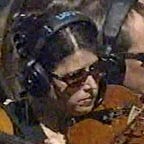Amazonians
post #2
Amazonians Group
With a fresh look we ponder the familiar tradition of Easter. Using the same old words and phrases of crucifixion, death, and resurrection, the idea of Holy Saturday brings an entirely new meaning! God entered death and added an addendum. Thus trauma can be addressed in the therapeutic reconditioning of a post-traumatic brain. When death has been experienced, it is possible for life to follow. This is the Good News of the Gospel and the reality of trauma work.
As the group continues to ponder growth, transformation, and the lifecycle, we looked to Plotkin’s connection of the seasons of life with seasons in nature. Our birth and childhood is represented by spring. Spring themes include innocence, foolishness, and light, easy connection with the divine. Summer represents early adolescence, where each person blossoms, engaging heat and fire in the extroverted energy of individuation from parents and personal empowerment, and discovers sexual energy in puberty. Autumn reminds us that the dark is coming, as adulthood bears change, the reality of loss, and an engagement with the shadow parts of ourselves. Finally, winter represents a cold, steady, conserved energy that carries older adults through generative self-sacrifice on behalf of their communities. Within this framework, trauma, a shattering experience that we do not have the present resources to process, would arrest our development. As each stage has developmental tasks, identity disrupting experiences in any stage means a person becomes cut off from their bodies, their tie to nature, and loses perspective on what they truly need to continue growing, learning, and experiencing life.
Wiman added,
“Life is not an error, even when it is… whatever faith you emerge with at the end of your life is going to be not simply affected by that life but intimately dependent upon it, for faith in God is, in the deepest sense, faith in life…” (p. 7).
A person’s faith has the potential to mirror the state of being after one who has endured trauma, in the way that trauma can bring one to a state of “shatterability.” Reading van der Kolk, trauma survivors suffer a hypersensitivity, a hypervigilance to threat, and ultimately, a fragmented, shattered psyche. We wondered how faith can parallel the mental state of a trauma survivor, becoming increasingly shatterable, or being flexible to change, but also can develop into something that Wiman describes, which feels far more adaptable, sustainable, and in alignment with the life of Christ that we read of in the Bible. Wiman (p. 18–19) writes, “Faith is not some hard, unchanging thing that you cling to through the vicissitudes of life. Those who try to make it into this are destined to become brittle, shatterable creatures. Faith never grows harder, never so deviates from its nature and becomes actually destructive, than in the person who refuses to admit that faith is change… any sense of divinity that we have comes from the natural order of things — is in some ultimate sense within the natural order of things — so too faith is folded into change, is the mutable and messy process of our lives rather than any fixed, mental product… change, or contingency, is the essence of incarnation.”
Ben Quash writes of the Holy Spirit as the one who allows for greater, higher meaning in ongoing human experiences. Applying this to trauma studies, we wondered if the Holy Spirit is responsible for the unique creative abilities developed in a survivor during a traumatic experience. Because this Holy Spirit is the being who opens experiences and unlocks meaning, it seems to follow that this is where the adaptive skills needed to survive a trauma originate. If this is true, ‘life after death’ is a pneumatological issue; it is the Holy Spirit who allows life to persist even after trauma. Levine and van der Kolk remind us that trauma continues to live in our very flesh. It seems that the combination of all these views is shaping our theology.
…
Bibliography
Levine, Peter A. In An Unspoken Voice: How the Body Releases Trauma and Restores Goodness. Berkeley, CA: North Atlantic, 2010.
Plotkin, Bill. Nature and the Human Soul: Cultivating Wholeness and Community in a Fragmented World. Novato, California: New World Library, 2008.
Quash, Ben. Found Theology: History, Imagination, and The Holy Spirit. London & New York: Bloomsbury T&T Clark, 2013.
van der Kolk, Bessel A. The Body Keeps the Score: Brain, Mind, and Body in the Healing of Trauma. London: Penguin, 2014.
Wiman, Christian. My Bright Abyss: Meditation of a Modern Believer. New York: Farrar, Straus and Giroux, 2013.
